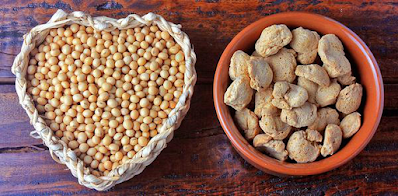
What are genetically modified soybeans?
Genetically modified (GM) soybeans are soybeans that have been genetically altered using biotechnology techniques. These techniques involve the insertion, deletion, or modification of specific genes in the soybean genome in order to give the soybeans certain desired characteristics. For example, GM soybeans may be modified to be resistant to pests, and herbicides, or to have a longer shelf life. GM soybeans are controversial, as some people are concerned about the safety of consuming genetically modified foods and the potential environmental impacts of GM crops.

What is the use of genetically modified soybeans?
There are several potential benefits to using genetically modified (GM) soybeans. Some of the most commonly cited benefits include:
Pest resistance: GM soybeans can be engineered to be resistant to pests, which can reduce the need for chemical pesticides and increase crop yields.
Herbicide tolerance: GM soybeans can be modified to be resistant to certain herbicides, allowing farmers to more effectively control weeds without damaging the crop.
Drought tolerance: Some GM soybeans have been engineered to be more drought-tolerant, which could make them more suitable for growing in dry or drought-prone areas.
Nutrient enhancement: GM soybeans could potentially be modified to have higher levels of certain nutrients, such as vitamins and minerals, making them a more nutritious food source.
Increased shelf life: GM soybeans could potentially be modified to have a longer shelf life, which could help reduce food waste and make them more convenient for consumers.
Genetically modified (GM) soybeans are used as a source of protein in poultry feed. Soybeans are a common ingredient in poultry feed because they are rich in protein and other nutrients that are essential for the growth and development of poultry.
What is the role of genetically modified soybeans in poultry?
In some cases, GM soybeans may be used in poultry feed because they have certain desirable characteristics, such as pest resistance or herbicide tolerance. For example, if a poultry farmer is using GM soybeans that are resistant to a certain pest, they may be able to reduce the number of pesticides they use on their crops. Similarly, if a farmer is using GM soybeans that are tolerant to a certain herbicide, they may be able to do more effectively control weeds without damaging the crop.
It is important to note that the use of GM soybeans in poultry feed is regulated by government agencies to ensure the safety of the food supply. In the United States, the Food and Drug Administration (FDA) is responsible for evaluating the safety of GM foods, including those that are used in poultry feed.

Do genetically modified soybeans harmful to health
There is an ongoing debate about the safety of genetically modified (GM) soybeans and other GM foods for human consumption. Some studies have suggested that GM foods may have negative impacts on human health, while others have found no significant differences between GM and non-GM foods.
The safety of GM foods is assessed by regulatory agencies before they are allowed on the market. In the United States, the Food and Drug Administration (FDA) is responsible for evaluating the safety of GM foods. The FDA reviews data from the developer of GM food as well as other scientific research to ensure that the food is safe to eat.
Overall, most scientists and regulatory agencies around the world agree that GM foods currently on the market are safe to eat. However, it is important to note that more research is needed to fully understand the long-term effects of consuming GM foods.


0 Comments